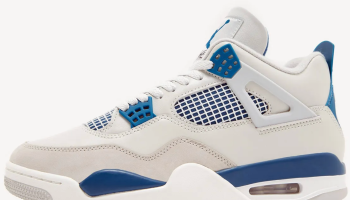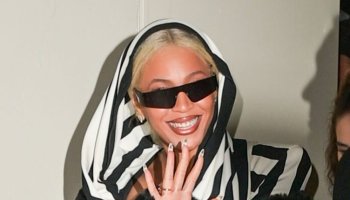Over the years, De La Soul has blessed us with classics like 3 Feet High & Rising, De La Soul Is Dead and Stakes Is High. However, said albums are AWOL on all streaming services.
Unless you snapped up their catalog when De La made it available as a free download for a day, are satisfied with just watching their videos or have a giving buddy with a deep MP3 collection, potential new fans are being shorted.
The New York Times tackled this subject in a feature story on the Long Island trio of Pos (Kelvin Mercer), Dave (David Jolicoeur) and Maseo (Vincent Mason).
“We’re in the Library of Congress, but we’re not on iTunes,” Mr. Mercer said, adding that when the group interacts with fans in person or online, they always ask the same question: “Yo, where’s the old stuff?”
That old stuff — which also includes “De La Soul Is Dead” (1991), “Buhloone Mindstate” (1993) and “Stakes Is High” (1996) — may be fraught with problems, according to people familiar with the group’s recording and publishing history. In 1989, obtaining the permission of musical copyright holders for the use of their intellectual property was often an afterthought. There was little precedent for young artists’ mining their parents’ record collections for source material and little regulation or guidelines for that process.
De La fans reading the article will no doubt be pissed at what seems like a flippant attitude from Warner Music (which controls the group’s catalog) when it comes to getting the samples cleared and thus being able to add the group’s music to services like Spotify and Apple Music.
“My understanding is that due to allegedly uncleared samples, Warners has been uncomfortable or unwilling to license a lot of the De La Soul stuff,” Ms. Mannis-Gardner said. “It becomes difficult opening these cans of worms — were things possibly cleared with a handshake?”
An added possible complication lies in the language of the agreements drafted for the use of all those samples. (There are more than 60 on “3 Feet High and Rising” alone — the group was sued by the Turtles in 1991 for the use of their song “You Showed Me” on a skit on that album and settled out of court for a reported $1.7 million.) If those agreements, written nearly three decades ago, do not account for formats other than CDs, vinyl LPs and cassettes, Warner Music would have to renegotiate terms for every sample on the group’s first four records with their respective copyright holders to make those available digitally.
Sounds like a lot of excuses versus real, and insurmountable, explanations. De La Soul was even willing to do the administrative work, but according to them Warner balked.
Maseo is fed up, and wants his dough.
Mr. Mason argues the time to do that work is now. “When I try my best to tap into the psyche of record execs and how they think, they know there’s some value — that’s why they’re not letting go,” he said. “But on this side of the fence, you’re like, ‘I’d appreciate you don’t wait until one of us die to do this.’ Can I enjoy some of the fruits of my own labor, while I’m alive? Obviously, we’re in the music industry — more people are more valuable dead than alive, you know? Can we change that landscape?”
Until De La Soul’s catalog is emancipated, be sure to share their music with an inquisitive Hip-Hop youngster whenever you can. Just be sure to add proper context so this struggle doesn’t happen (link is to a proper retort).
De La Soul’s new album, and the Anonymous Nobody, is due out August 26. Check out the latest single, “Drawn,” featuring Little Dragon, below.
Read the full NY Times story right here.
—
Photo: press handout















